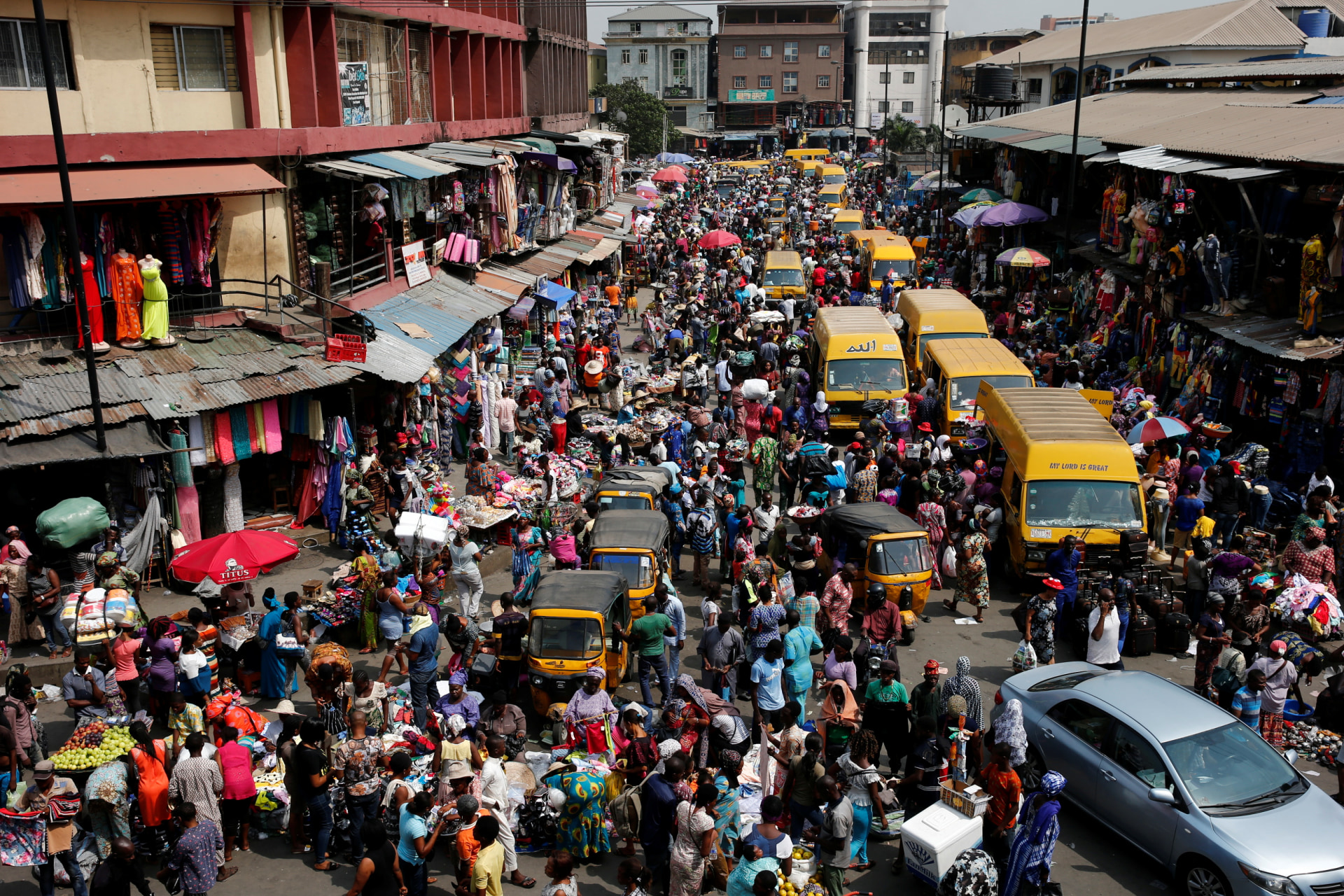Nigeria Faces a Crippling Population Boom

By experts and staff
- Published
By
- John CampbellRalph Bunche Senior Fellow for Africa Policy Studies
At a population conference in New York, Chairman of the National Population Commission (NPC) Eze Duruiheoma estimated that the current population of Nigeria is 198 million, and that the population living in urban areas has been growing 6.5 percent annually over the past fifty years. He cites that World Population Prospects prediction that by 2050, Nigeria will displace the United States as the third most populous country in the world after China and India. He also noted the 2014 World Urbanization Prospects prediction that by 2050, 77 percent of Nigeria’s population will be urban. The NPC chairman also looked at the number of internally displaced Nigerians. With respect to the Boko Haram insurrection in the northeast, Duruiheoma estimated that the number of internally displaced is 1.76 million, which is lower than other estimates, some of which can be as high as 2.5 million.
Nigerians know they are by far the most populous country in Africa, and they are proud of it. Estimates of the size of the country’s population range from the World Bank’s 186 million to 205 million by UN agencies. An accurate census is difficult in Nigeria in part because of infrastructure shortcomings. In the past, too, census results have also fueled ethnic and religious conflicts exploited by political figures. Nevertheless, in 2017 the director general of the NPC raised the possibility of a census in 2018. Given the practical and political difficulties and with the prospect of national elections in 2019, that timeframe seems overly optimistic. In the meantime, it is necessary to fall back on careful estimates.
Duruiheoma pointed out in New York that Nigeria’s urban population growth has not been accompanied by a “commensurate increase in social amenities and infrastructure.” More generally, economic growth has not kept up with population growth. Hence, the enormous slums outside city centers. In effect, Nigeria has no population policy that would limit births, and Nigerians have traditionally valued large families. Yet the country’s rapid population growth, especially in urban areas, poses difficult economic, social, and public health challenges. A huge, rapidly growing population is not necessarily a source of national strength.